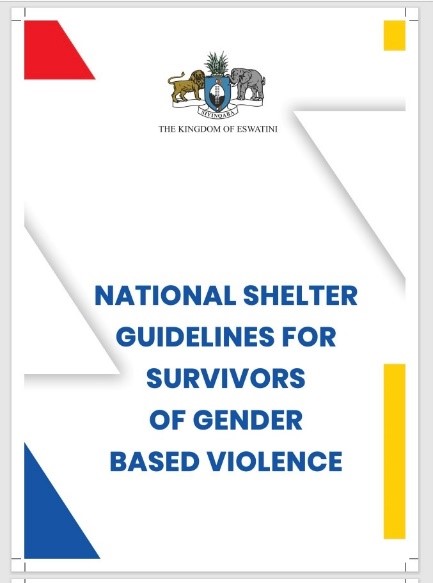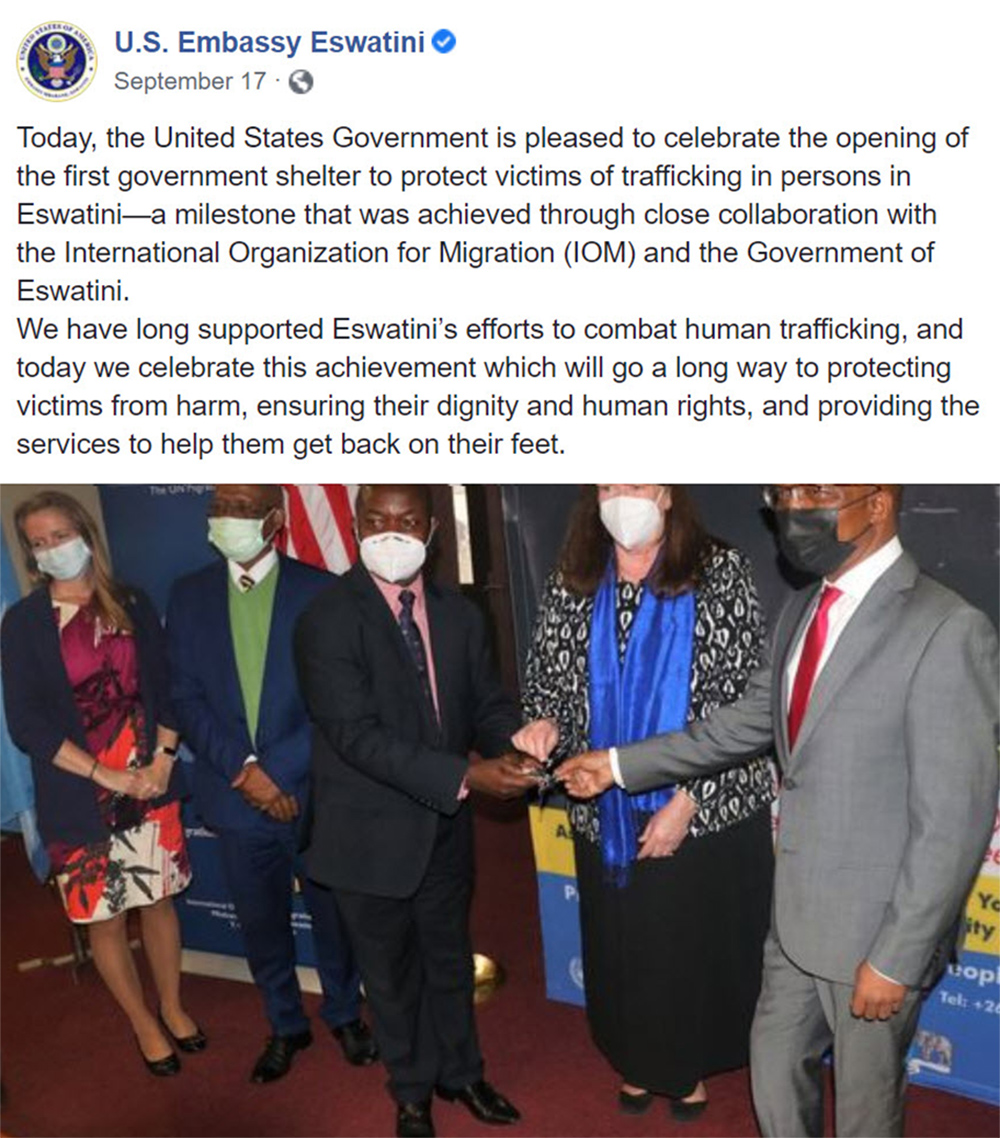CDC Supports Eswatini in Expanding Services for Survivors of Gender-based Violence
Summary
- With assistance from PEPFAR through CDC, Eswatini developed National Shelter Guidelines for Survivors of Gender-Based Violence.
- Eswatini opened its first formal gender-based violence shelter in July 2021, and a second shelter in September 2021.
Gender-based violence (GBV) remains a challenge in Eswatini. Poverty, lack of education, and limited livelihood opportunities also present challenges. Norms such as “Tibi Tendlu,” or reluctance to intervene in gender-based violence among family matters, and community perceptions of child rights and discipline, undermine efforts to prevent GBV. According to the Royal Eswatini Police, there were 11,081 reported cases of GBV in 2018. A total of 8,043 of these cases were perpetrated against women and 3,038 against men.
“We had no instrument to guide and standardise the operation of shelters in the country even for some organisations that may want to assist victims of violence”
– Social Worker from the DPM’s Office.
The most common forms of GBV observed in Eswatini are physical, sexual, emotional, and economic violence, mainly affecting women, children, and persons living with disabilities. According to the Eswatini Violence Against Children Survey (VACS) of 2007, approximately one-third of girls experience sexual and emotional violence during childhood; nearly a quarter of females experience physical violence. Boyfriends and husbands are the most frequent perpetrators of sexual violence. Male relatives are the most frequent perpetrators of physical violence. More current data are needed to understand the impact of violence in Eswatini and to inform prevention and response programs, particularly because COVID-19 mitigation efforts, such as mandatory lockdowns, heighten the risks of GBV. PEPFAR, through the US Centers for Disease Control and Prevention (CDC), is currently supporting a repeat VACS in collaboration with Deputy Prime Minister’s Office, MOH and ICAP to provide these much-needed data.
CDC and Eswatini develop guidance to help GBV survivors

Cover of the National Shelter Guidelines for Survivors of Gender Based Violence.
Given the context, with assistance from PEPFAR through the CDC, Population Services International (PSI) Eswatini collaborated with the Deputy Prime Minister’s (DPM) office to help prepare and respond to GBV issues through the development of national shelter guidelines.
The approved National Shelter Guidelines provide guidance and operational procedures for both public and private sector entities to deliver temporary housing to survivors of GBV. The guidelines articulate what constitutes a shelter, the required minimum standards for infrastructure, and a minimum standard care package aligned to the various age groups and vulnerabilities of survivors of GBV. The endorsement of these guidelines by the Cabinet in February 2021 was a critical step toward establishing shelters and improving the quality of psychosocial support and care for survivors of GBV in Eswatini.
Using training materials developed to facilitate the implementation of the National Shelter Guidelines, 16 trained social workers assist organizations/communities in establishing shelters. In July 2021, Eswatini opened its first formal GBV shelter constructed using standards outlined in the National Shelter Guidelines. Operated by a faith-based organization, the shelter can house 24 individuals, including one family in a separate room. The building structure is friendly for persons with physical disabilities and has no signage identifying it as a shelter. Since its establishment, the shelter has housed at least 12 people, mainly adolescent girls, and young women. Shelters such as this one make it possible for those experiencing GBV to find refuge and resources to navigate the judicial, police, and social service systems, and facilitates access to critical protection should they find themselves in similar situations in the future. In September 2021, Eswatini opened a second shelter operating under the National Guidelines by the government and supported by the US Embassy to protect victims of trafficking.

Official opening of the first government shelter in Eswatini. Photo by US Embassy Eswatini.